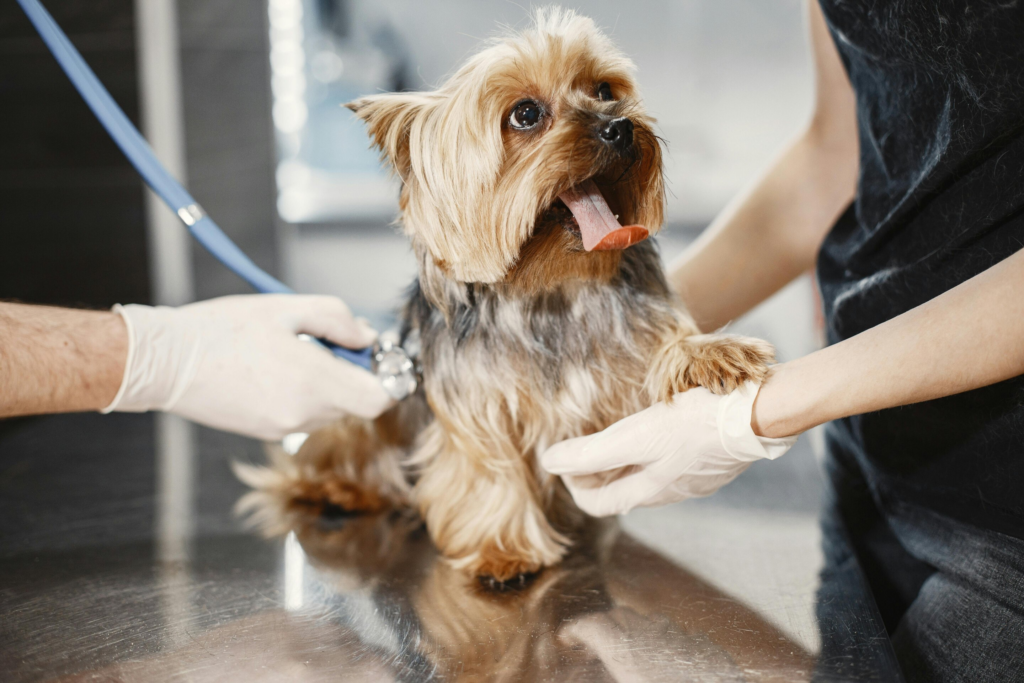Click here to sign in with or
Forget Password?
Learn more
share this!
Share
Twit
Share
Email
October 28, 2024
This article has been reviewed according to Science X’s editorial process and policies. Editors have highlighted the following attributes while ensuring the content’s credibility:
fact-checked
peer-reviewed publication
trusted source
proofread
by Faith Pring, University of Nottingham
A new study has highlighted how more research is needed in order to demonstrate the effect of neutering timing on dog health.
Effects of neutering on female dog health have been reported in previous studies, and are suggested to relate to age at the time of neutering for some diseases. However, these studies have shown variation in their methodologies and study populations, making comparisons more difficult.
In a new scoping review led by Dr. Rachel Moxon at the University of Nottingham, academics systematically searched the available literature on dog neutering to identify evidence on the effect of neutering timing in relation to puberty on five health outcomes: atopy, developmental orthopedic disease (DOD), neoplasia, obesity and urogenital disease.
The review looked at studies about how neutering female dogs affects their health, specifically when it’s done before or after puberty. The study is published in the journal PLOS ONE.
The review identified a lack of evidence related to the impacts of neutering female dogs before or after puberty on the five aspects of dog health. Few studies were identified that investigated the health implications of neutering female dogs considering pubertal status at neutering. Most of the other studies did not focus on puberty and instead just considered the dog’s age.
This information is important for veterinarians and dog owners when deciding about neutering timing, as the impact on health is still unclear.
Rachel Moxon, lead researcher on the project, said, “Conflicting information in the veterinary literature regarding the beneficial and detrimental impacts of neutering at different times makes decisions regarding the best time to neuter female dogs difficult for pet dog owners, and providing advice to owners difficult for veterinarians.”
“Similar to the findings of another review by this research group that looked at the effects on behavior, this review has identified a lack of evidence related to the impacts of neutering female dogs before or after puberty on five aspects of female dog health.
“Studies generally propose that neutering female dogs earlier appears to be protective for some, but not all, cancers, but increases the risk of developmental orthopedic disease and potentially urinary incontinence; contrasting results that make applying the findings to benefit female dog health difficult.”
More information: Rachel Moxon et al, Effect of neutering timing in relation to puberty on health in the female dog–a scoping review, PLOS ONE (2024). DOI: 10.1371/journal.pone.0311779
Journal information: PLoS ONE
Journal information: PLoS ONE
Provided by University of Nottingham
Explore further
Facebook
Twitter
Email
Feedback to editors
2 hours ago
0
2 hours ago
0
3 hours ago
0
3 hours ago
0
Oct 27, 2024
6
27 minutes ago
27 minutes ago
28 minutes ago
1 hour ago
1 hour ago
1 hour ago
1 hour ago
2 hours ago
2 hours ago
2 hours ago
13 minutes ago
1 hour ago
2 hours ago
Oct 27, 2024
Oct 18, 2024
Oct 18, 2024
More from Biology and Medical
May 28, 2024
Jul 16, 2020
Feb 29, 2024
Jul 13, 2023
Jul 18, 2019
Aug 13, 2020
Oct 21, 2024
Oct 11, 2024
Oct 8, 2024
Oct 2, 2024
Oct 1, 2024
Sep 20, 2024
Use this form if you have come across a typo, inaccuracy or would like to send an edit request for the content on this page. For general inquiries, please use our contact form. For general feedback, use the public comments section below (please adhere to guidelines).
Please select the most appropriate category to facilitate processing of your request
Thank you for taking time to provide your feedback to the editors.
Your feedback is important to us. However, we do not guarantee individual replies due to the high volume of messages.
Your email address is used only to let the recipient know who sent the email. Neither your address nor the recipient’s address will be used for any other purpose. The information you enter will appear in your e-mail message and is not retained by Phys.org in any form.
Get weekly and/or daily updates delivered to your inbox. You can unsubscribe at any time and we’ll never share your details to third parties.
More information Privacy policy
We keep our content available to everyone. Consider supporting Science X’s mission by getting a premium account.
Medical research advances and health news
The latest engineering, electronics and technology advances
The most comprehensive sci-tech news coverage on the web

